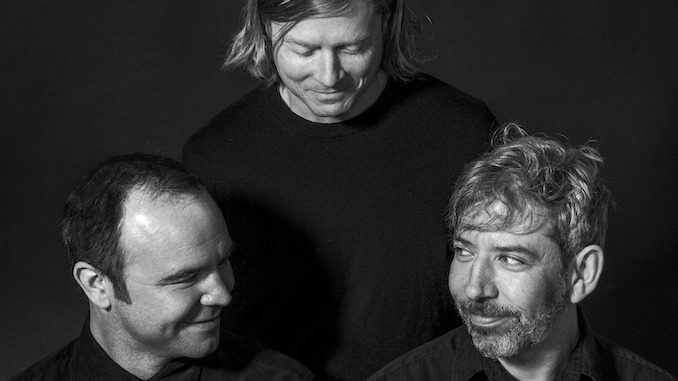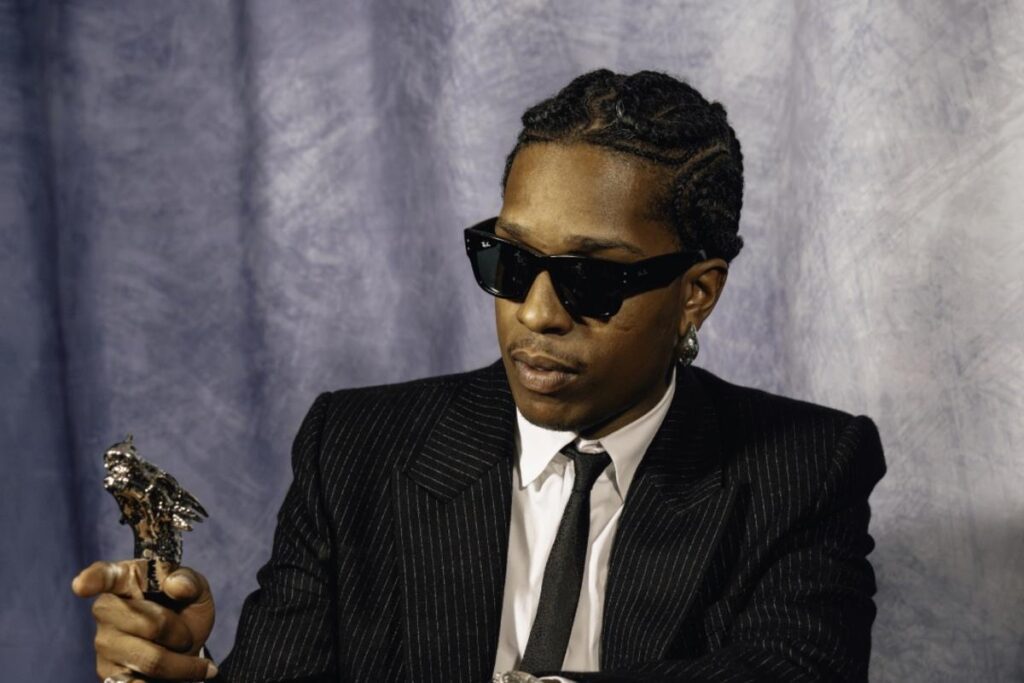There is an unspoken agreement between a band and their listeners when they gear up to record their third album. A great sophomore release can help you to forget the clunky first impression of a debut. But if a band is given the audience for a third, they can really build upon—or derail—their reputation however they choose. Toronto band Kiwi Jr.’s 2021 album Cooler Returns didn’t really have a heavy load in terms of justifying the jangle-pop-meets-‘90s Gen X indie rock modus operandi of their maiden voyage, Football Money. In many ways, it did that album one better with more urgent arrangements and the confident swagger of a caged velociraptor finding a weak spot in the electric fence at Jurassic Park. With Chopper, the band doesn’t exactly go polka, so to speak, though there is a noticeable progression in their sound that points towards subtle and tasteful refinement.
With production from Wolf Parade and Handsome Furs mastermind—and current Arcade Fire member—Dan Boeckner, Chopper sees the clanking of lead singer and songwriter Jeremy Gaudet’s 12-string takes a backseat to thick and tuneful synth lines. In 2022, a shift towards this kind of instrumentation can carve “These sellouts jumped the shark” into an indie-rock band’s tombstone. That’s hardly the case here. The album is full of plastic pop like the single “Night Vision” that evokes the claustrophobic and extraterrestrial new wave sounds of The Cars to great effect. It’s a sound that suits the band wonderfully as they choose to heighten hooks that were already wildly abundant in their songs, rather than strive for grandiosity.
Always the focus of a Kiwi Jr. record, Gaudet seems like the kind of indie-rock frontman who was built in a lab after years researching some of the genre’s most idiosyncratic and sardonic personalities. Like Stephen Malkmus, Adam Green and David Berman without the affinity for country storytelling, Gaudet’s lyrics and delivery drip with the kind of sharp wit and sarcasm that welcomes you in on the joke. Also like those artists mentioned, he finds poetry in the mundane necessities of our modern existences. Similar to Jason Lytle’s best work in Grandaddy, he can shine a spotlight on the profound loneliness of everyday young professionals, with only their stacks of useless consumer goods and dwindling savings to assure their life was well spent. In “Parasite II,” he wonders if there is someone else sneaking around his empty home drinking all of his beer and ironing his shirts in the laundry room. “There’s an ancient crisis of faith that’s building in the bedroom / A retelling of Arthurian Legend in the bathroom mirror,” he sings, knowing the culprit is definitely calling from inside the house.
His writing is filled with metaphors that prove that humans are only let down harder the more we innovate. Now that technology has proven nothing is impossible, what’s our excuse when we can’t make our dreams our realities? He brings that point across succinctly on the standout “Clerical Sleep.” “I know a man with the most advanced robot prosthetic in the history of the world / Built in a lab,” he yelps as the song races to its closing moments. “It cost $2,000,000, but he hates it, can’t stand it, never wears it, it just sits there.”
Perhaps the biggest theme throughout Chopper is the concept of “main character syndrome,” or the inflated sense of purpose we feel any time we get an inch away from the spotlight. But the way that Gaudet approaches this sense of importance on songs like “The Extra Sees the Film” or “The Sound of Music” isn’t necessarily a commentary on megalomania. It’s more a portrayal of the desperate desire many of us have to be seen for the stars we hope to become. In “The Sound of Music,” he zooms in on one character laying their life on the line for a one brief moment of recognition, singing, “When they pulled you out of the harbor you were holding onto a book / Then you shoved your screenplay into my chest and said, ‘Won’t you at least take a look?’” How much blood would you spill to elbow your way into the zeitgeist?
If there is one complaint about a band like Kiwi Jr., it’s that their destiny was already written once their ingredients were shared with the public. This kind of true-blue jangly and literate indie rock that pays homage to the past will always have its circle of fans. If that’s not your thing, there aren’t many surprises in the album’s 37-minute runtime that will rope in the unconverted. But for those who can’t get enough of it, Kiwi Jr. are doing this kind of music better than just about anybody right now, and with Chopper, Gaudet and the rest of the band justify their standing amongst their influences.
Pat King is a Philadelphia-based journalist and host of the In Conversation podcast at Ears to Feed. He releases his own music with his project Labrador and is a tireless show-goer and rock doc fanatic. He recently took up long-distance running, which he will not shut up about. You can follow him at @MrPatKing.



